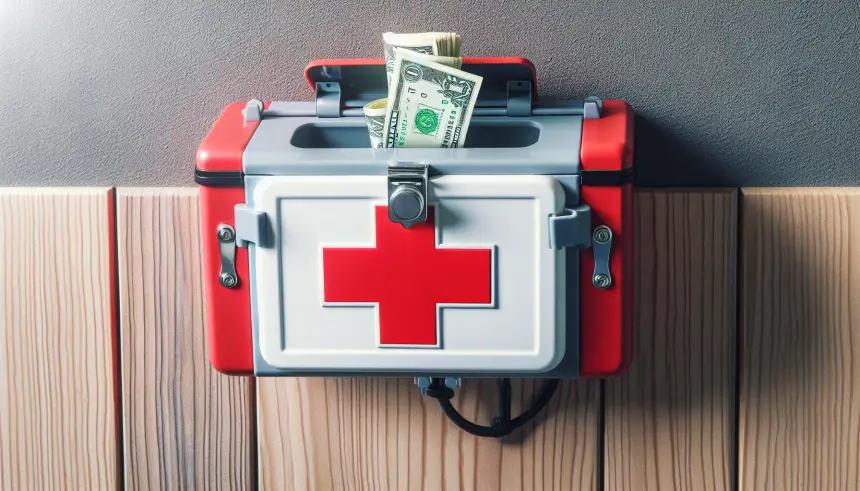Life is full of surprises, and not all of them are pleasant. Unexpected bills, sudden job loss, or unforeseen expenses can throw a wrench into your financial plans. But what if there was a way to cushion these financial blows? Enter the emergency fund – your financial safety net. We’ll show you the importance of an emergency fund, why you need one, and how to build it. So, if you’ve ever found yourself wondering, ‘What is an emergency fund, and why is it important?’ you’re in the right place.
What’s an Emergency Fund?
An emergency fund, also known as a rainy day fund, is a stash of cash set aside to cover the cost of unexpected, and often expensive, events. These savings are meant for real, urgent needs—like paying rent when your income dries up or footing an unplanned medical bill. The biggest benefit of an emergency fund is that it allows you to pay for life’s necessities without having to rack up a balance on your credit card, take out a loan, or tap into your home’s equity.
However, it’s crucial to remember that an emergency fund is not a personal slush fund for when your skis break or you’re eyeing a new dress for your best friend’s wedding. Knowing when to use your emergency fund is as important as knowing why you need one.
The Real-Life Importance of an Emergency Fund
Christine Luken, an author and personal finance blogger, learned the importance of an emergency fund the hard way. Before she had an emergency fund, unexpected car repairs or vet bills led to not just one, but two problems: the original emergency and a money problem. These challenging experiences led her to an important realization: The unexpected can happen at any time. It’s Murphy’s law, after all: If something can go wrong, it will.
For Luken, the need for an emergency fund became clear when her car’s alternator failed. She had to resort to payday loans to pay to fix it, and that led to credit problems. Setting up an emergency fund by opening a savings account was transformative for Luken, who recommends saving at least six months’ worth of your salary for unexpected costs.
When You Might Need an Emergency Fund
Your emergency fund is there for you if you lose your primary source of income. It can also help you continue an upward career trajectory if you happen to lose your job. Your emergency fund grants you the time you need to make a thoughtful choice about what your next career move will be and financially prepare for a job transition.
Whether it’s an unexpected illness or a major accident, an emergency fund helps you pay for big medical expenses that could otherwise hurt you financially. Even if you have medical or dental insurance, you could still have to pay for all or part of your care out of pocket. In addition to deductibles, some procedures might not be covered, or you may max out your coverage for nonessential health care in your plan year.
Managing Your Emergency Fund
Emergency funds can help foot the bill in the event of unexpected medical and dental bills, home and auto repairs, and job losses, but they can also cover other unanticipated costs. For instance, recent years have seen rising costs on everything from food to gas. Basically, if you think your short-term checking account isn’t going to cover any essential bills or expenses, such as housing, utilities, and food, then you should use your emergency fund.
As you decide how to use your emergency fund, it’s advised against dipping into the fund for minor or non-essential expenses with the expectation to rebuild after another paycheck—especially during times of financial hardship.
Rebuilding Your Emergency Fund
After you’ve determined when to spend your emergency fund, you’ll likely be motivated to get it back to the state it was in before the emergency. The approach to replenishing lost funds is no different than building your funds. Budgeting can help you reach your financial goals for your emergency fund just like it can for other short-term savings goals—or longer-term ones.
Now that you understand what an emergency fund is and why it’s important, it’s time to make the next move: building one for yourself.




